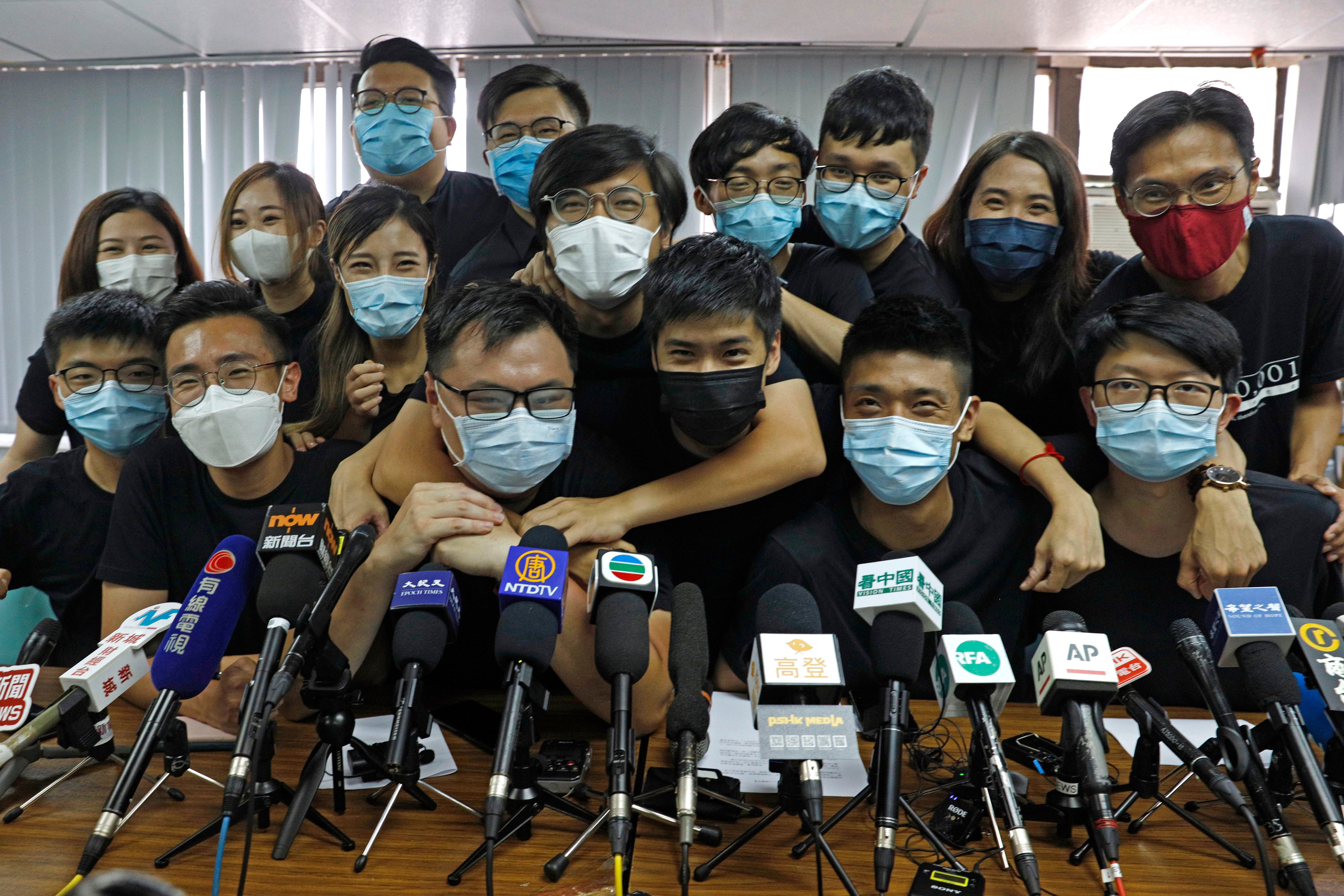EXPLAINER: Hong Kong mass arrests chill democracy movement
The sudden arrest of dozens of pro-democracy activists in Hong Kong is a clear sign of Beijing’s determination to rein in political opposition in the former British colony

Your support helps us to tell the story
From reproductive rights to climate change to Big Tech, The Independent is on the ground when the story is developing. Whether it's investigating the financials of Elon Musk's pro-Trump PAC or producing our latest documentary, 'The A Word', which shines a light on the American women fighting for reproductive rights, we know how important it is to parse out the facts from the messaging.
At such a critical moment in US history, we need reporters on the ground. Your donation allows us to keep sending journalists to speak to both sides of the story.
The Independent is trusted by Americans across the entire political spectrum. And unlike many other quality news outlets, we choose not to lock Americans out of our reporting and analysis with paywalls. We believe quality journalism should be available to everyone, paid for by those who can afford it.
Your support makes all the difference.The sudden arrest of dozens of pro-democracy activists in Hong Kong in the most sweeping use of a new national security law to date, is a clear sign of Beijing s determination to rein in political opposition in the former British colony.
The Wednesday morning roundup, widely condemned by Western government officials and human rights groups, will likely further chill an already dwindling protest movement in the semi-autonomous Chinese territory.
WHAT HAPPENED?
Police detained about 50 people, far more than in previous cases under the 7-month-old national security law. Those targeted appeared to include all candidates who had run in an unofficial opposition primary last year ahead of an expected election for Hong Kong’s legislature. City leader Carrie Lam later scrapped the election, citing the coronavirus pandemic. Activists called her move a thinly veiled attempt to thwart expected opposition gains.
HOW CAN A PRIMARY BE A THREAT TO NATIONAL SECURITY?
Security Secretary John Lee said those arrested were suspected of trying to gain control of the legislature to paralyze government business. The subversion section of the national security law criminalizes “seriously interfering in, disrupting, or undermining the performance of duties and functions” of the Chinese or Hong Kong governments.
Lam said at the time of the primary that if its purpose was to resist every government initiative, it could amount to subverting state power. The central government labeled the primary illegal and a “serious provocation” to Hong Kong’s electoral system.
WHAT’S THE LIKELY IMPACT?
The arrests will remove more activists from the scene, reducing the possibility of renewed protests and eliminating many as future candidates for office. They warn a younger generation that formed the backbone of protests in 2014 and 2019 that even holding an unofficial primary can result in legal action that can seriously impact their futures.
Human Rights Watch said of the move that repression generates resistance, but the tightening restrictions on opposition activity and the lingering effects of the coronavirus on public life and the economy could delay or permanently discourage the emergence of a new generation willing to take on Beijing.
WHY NOW?
Beijing has been unrelenting in its efforts to prevent any repeat of the 2019 protests, which grew increasingly violent in response to the government's refusal to entertain the protesters' demands. They plunged Hong Kong into its biggest political crisis since its return to Chinese rule in 1997.
China is also determined to drive out what it sees as unwarranted foreign government interference in its domestic affairs. The nation's newfound military, economic and political clout is emboldening it to take on the West, and it can take advantage of distractions resulting from pandemic and political disruptions in the U.S. and Europe.